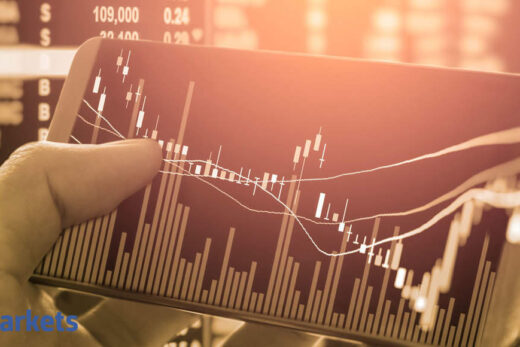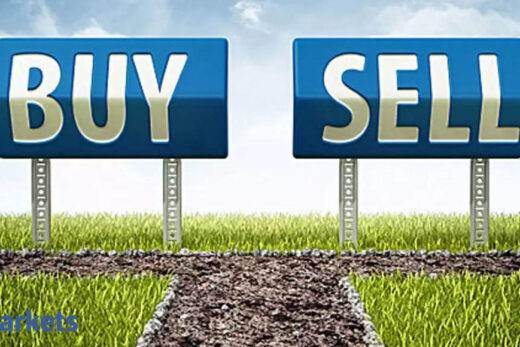What do you make of the market right now? Are markets running ahead of themselves or has the party just started and we have a long way to go?
I believe that a huge transition is in place. We are having a digital revolution and one of the things that the government has clearly manifested is the move towards digital India. All of a sudden, 130 crore Indians are on the same digital platform. This is a huge catalyst for a complete paradigm change. It is probably the number one catalyst which will transform and take India to the highest growth rate that it ever saw.
When you say we are on the verge of a new paradigm shift, how does one translate that into an investment opportunity?
When you read certain things, you become far more disciplined in your thought process. There are two books that I have been reading. These books have taught me that there is huge paradigm change in the way human beings are reacting. The first book is by Vivek Wadhwa who talks about incremental to exponential growth. He gave a very interesting example of how there are multiple factors collaborating to bring in a change. For example, when Uber came, it was not as if Uber was going to grow on its own, particularly when it did not own any cars. Uber’s growth was centric around the growth of internet. The growth of the internet was centred around the growth of phones. Neither the internet nor the phones were owned by Uber, but within all this, there were also social changes. Human beings began to accept the fact that they could sit in a car with a stranger that they never knew; they could live in somebody’s home that they never knew thanks to Airbnb. Therefore the entire paradigm of trust changed. Then came payment gateways. The fact that I could make a payment for the vehicle by just tapping on my phone enabled me to do that ride in a very transparent way. As a result, it was not just Uber that benefited but it was a collaborative benefit that happened to many other industries.
In another very fascinating book called The Future Is Faster Than You Think written by Peter H. Diamandis and Steven Kotler. They are saying that the computer will be able to beat or match a human brain by as early as 2023. And in 25 years thereafter, the computers will actually exceed all of human beings put together in terms of brain power. So what is basically happening is that this massive growth that is happening on the computing side is going to cause many industries to do well. Now, of course, the most obvious is the IT industry itself. I do not necessarily mean only large IT companies. This will be a massive game changer for many start-ups and many fintech providers as well. It will be a massive game changer for healthcare, changing the way people’s health will be monitored and health management services will become a big trigger. It will also cause a lot of financial inclusion.
Today a housewife sitting in Himachal is able to sell her pickles and get a very good quality delivery because there is exposure on social media or exposure on the net. There are very good packaging materials available. There is also very good logistics available. There is transparency and all of a sudden, the entire business paradigm changes. This money that is coming into the ecosystem is business money and this business money will find capital which will find the IPO and IPO will find a rating that has happened with brands like Mrs Bectors. It is going to be a massive inclusion of multiple sectors. Businesses are not only doing things on their own, but are also going to directly benefit from this huge explosion of digital.
It is a great point that the way we do business has changed and that is how natural migration happens and that is how society is involved. But when it comes to adaptation of technology and collaboration, is it mostly the big companies which are able to adapt?
My personal view is two cycles are at play right now. At one end of the cycle are the very large companies adapting to technology very fast and those companies will see a lot of operational efficiencies. Effectively, a lot of middlemen have been eliminated from the system and the entire business has become direct to consumers. HUL India had given a statement that about 9% of HUL’s business is now moving online and so they will see a lot of operational efficiency kick in. Consumption stocks are very richly valued.
The second part of it is what CK Prahalad used to call the bottom of the pyramid. Let us take an example of the social system. We typically have a male dominated working society which has not given due credit to women. Today a housewife making pickles is able to deliver it pan India, the moment she reaches out on the social media or on the internet. As the number starts kicking in, the husband who would not have been encouraging earlier, discovers that she is doing far better than even him. And in fact he then comes and says why do not I go to the bank, borrow some amount of money or put in money of friends or whatever things and grow your business. In the last few months, there has been a huge emergence of the medium and small scale sector in India. In fact, one of the biggest catalysts of growth in India is going to be this combination of digital along with entrepreneurs from the small and medium industry. Where does all this money add up? It still has to go to a bank, it still has to buy housing material and improvements and insurance and cars. But you can easily play this theme by looking at financial inclusion, by looking at the entire catalyst that is coming in.
You have mentioned this Himachal housewives pickled twice now. What is this pickle that you have recently bought?
So many brands are available to you these days while you are sitting at home. I just picked the most primitive example because it is not an industry where it is easy to have any monopoly.
I will give you another example. The before yesterday, Economic Times carried a story that the CEO of Nestle in Vevey in Switzerland made a statement that some part of his performance will be appraised only by the contribution made towards betterment and sustainability of the environment. There is a very large packaging company based out of Finland and operating in India called Huhtamaki Paper. They have launched a project called Blueloop which is a collaborative effort between the company and the brand to create packaging that is environment friendly. This is not a change that is coming in because a company is reaching out to a MNC to say that I have got the services. This is a change coming from awareness quite similar to the Uber example that I gave. Nestle itself is changing the packaging all around the world.
Look at the potential that it carries for a) the packaging companies b) the entire marketing and the sort of positioning that will happen. I read that they are already making coffee cups out of plants now rather than plastic, making them environment friendly.
How is the preventive healthcare space shaping up because there is clearly room for more within the unlisted universe?
That is one of the reasons why I said that this is a paradigm shift even for the small and medium companies. The digital enabling of India has created a very massive shift. The catalysts are many for the healthcare companies. There is
and also Max Healthcare. In case of Max, the stock price is up 100% in the last may be three months odd. They are going to technology and using apps now. If you want to book an appointment in Max, you have to go to the app. The doctor sees your report electronically, the data is maintained electronically, the diagnostics reports come electronically, the next meeting is set electronically and prescriptions come electronically.
I was talking to a startup to advise them on IP and they said that they are going to tier two and tier three towns where people do not have access to a Max or a Fortis or an Apollo. They are creating the equivalent of ATMs there. People go to the ATMs and get a report done then go back to their homes. The report is sent electronically to these big hospitals and prominent doctors in different parts of India. By evening, the doctor has seen the report without the necessity of that person travelling to that hospital and may not get an appointment.
There is also another very big change. I do not know when the letter comes out but for example why is Warren Buffett increasing his exposure to pharma? It is a matter of history that drug launches do not happen for years and years but what has happened is with this entire paradigm changes, the ability to process data, the ability to look at computing and now in Covid, the fastest ever launch of drugs have been done by several companies. If drug companies are able to launch drugs after a gap of one year, that will be a huge change. If more and more drugs come out then again health management will change because the entire concept of having access to information on your phone is very different.
Why just healthcare companies? There is this company in America called Calm which has one of the best selling apps in the world and all that they do is offer meditation, teach you how to breathe and their valuations are going into billions of dollars because they have a huge access to consumers.
Do any business new or old, has to be tech enabled for it to be a multi-bagger or a growth story from here onwards?
No. I just gave you an example of packaging. You cannot call it tech enabled. But if all us have to become conscious of the environment and start migrating towards more user-friendly things, that will lead to emergence of re-usable or biodegradable products. It fascinates me. Look at what is happening around the world, There is artificial intelligence, there is computing, there is biotechnology, there is nanotechnology. Uber is trying to experiment with flying cars that are going to land helipad equivalents, The battery industry is changing technology to make the batteries so light that they are able to power electronics.
These valuations exist in the market and we have some limited abilities to compute the valuation but we are not able to see exponential change till the time it is happening. The biggest example of exponential change is that people for reasons right or wrong, trust a currency that is not backed by any regulator in the world. But the currency has been such a huge performer. The last thing in life that you trust is to give your money to somebody that you do not even know is regulated and does not even have a system or a benchmark to value. So not everything is going to last.
Of course, some of the things will not continue but when I am talking about business transformations, I think it is that longevity is going to be very long and therefore there may be times when the market may correct. But if you are invested for the long haul, then there is the ability of that money to compound.
I have a very interesting theory. I am going to change my designation from strategist to value enhancer and I will become a VE now instead of whatever I am. This concept of value enhancement will only mean that the people have to be aligned. I think our prime minister said yesterday that India has great ideas but we do not have mentors.



